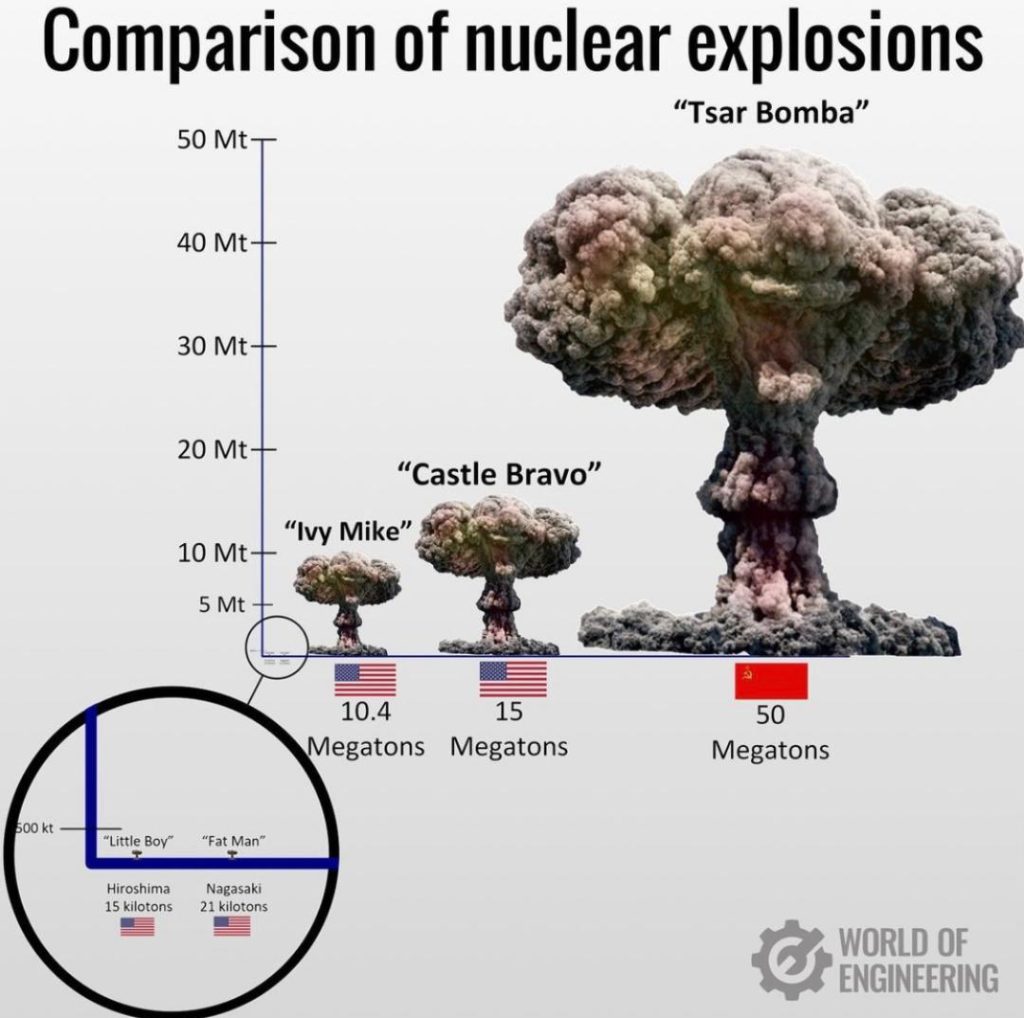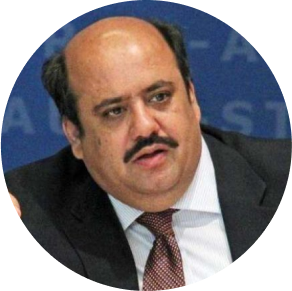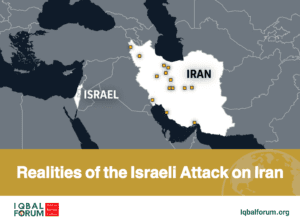What the resumption of nuclear testing spells for regional safety
The increasing strategic competition among the great powers has unleashed a conventional and nuclear arms race among them. And the foremost casualty of the current wave of the arms race will be the end of the moratorium on nuclear weapon tests. Besides, it ends the hope that the Comprehensive Test Ban Treaty (CTBT) that commits all members not to carry out any nuclear weapon test explosions or other nuclear explosions, will ever come into effect.
The end of the moratorium on nuclear testing dashed the hope of a nuclear-weapon-free zone in the Middle East. Except for Israel, all other countries in the region are party to the NPT, and their nuclear activities are under the International Atomic Energy Agency safeguards. Do they continue to honor the IAEA safeguards and aspire for nuclear weapon free zones?
The resumption of nuclear weapon tests increases the lethality and eases the portability of atomic arms in the war. Moreover, it intensifies the nuclear arms race in South Asia and increases the chances of nuclearization in the Middle East.
Under Article 4 of the NPT, Riyadh can access nuclear technology for peaceful purposes. It also receives assistance from nuclear-advanced countries for establishing its nuclear power plants, uranium enrichment, and reprocessing facilities for civilian use.
Pakistan has observed restraint despite India’s development of advanced nuclear delivery vehicles, including hypersonic cruise missiles. However, the restarting of nuclear testing compels Pakistan to modernize its tactical and strategic nuclear weapons. Besides, it should resume testing to ensure its new generation of nuclear weapons operability. The resumption of nuclear testing will not be acceptable to Western nations, which may impose economic sanctions on it—furthering economic instability in the country.
Since the dawn of the nuclear era, the US has continued modernizing its nuclear weapons and missile programs. Despite this, American nuclear scientists raised a serious question about the reliability of their current nuclear stockpiles.
Realizing the frustration of the nuclear scientific community, the Biden administration mandated scientists to physically validate the effectiveness and reliability of the ageing US stockpile of nuclear weapons. On October 5, United States Energy Department officials announced they were preparing for underground testing called “tickling the dragon’s tail” in 2024, which refers to the nuclear test in which the experiment approaches but stays below the stage at which the fission of nuclear materials sustains an ongoing series of chain reactions.
Pakistan too should resume testing to ensure its new generation of nuclear weapons operability.
Dr. Zafar Nawaz Jaspal
Satellite imagery has also revealed the expansion of the Russian nuclear testing site facilities over the past three years. On September 28, an adviser to the Russian President recommended that Russia test at least one nuclear weapon, confirming that the Kremlin was also ending its moratorium on nuclear testing. China is also ameliorating its former nuclear test site.
American, Chinese, and Russian nuclear testing preparations will have a domino effect in the Korean peninsula, South Asia, and the Middle East.
North Korea conducted six underground nuclear tests from 2006 to 2017 and is preparing to conduct nuclear warhead tests. India plans to conduct further nuclear tests to prove its thermonuclear weapons designs.
Nuclear energy has been gaining attraction in oil-rich countries as well. Iran and the UAE have developed nuclear power plants. The Saudis are working on a nuclear power plant blueprint. Mastering nuclear energy proficiency enables states to fabricate uranium or reprocess spent nuclear power plant fuel to manufacture nuclear arms.
Israel is the only Middle Eastern State not a party to the Nuclear Nonproliferation Treaty, and its nuclear program instigates other regional actors to exit the NPT and conduct nuclear weapon test explosions to join the nuclear-armed states club as well. Iran is a case in point.
Tehran’s fissile material production potential and development of long-range ballistic missiles unease its neighbors, because it has the necessary infrastructure and technological know-how to produce nuclear weapons. During the new wave of nuclear weapons testing, Iran might exit from NPT and conduct a nuclear weapon test.
Saudi Arabia is a member of the NPT and therefore its entire nuclear activities are under the IAEA safeguards. Riyadh plans to establish its uranium enrichment facility to create indigenous nuclear fuel for its future nuclear power industry, including setting the full nuclear fuel cycle. Uranium enrichment or fuel cycle capability enables a country to opt for nuclear weapons by diverting its civilian program to military purposes.
To conclude, technically, nuclear-armed states want to test to confirm the credibility of their nuclear arsenals. Politically, testing sends a strong political message that nuclear weapons can be used to win a war. Finally, the end of the nuclear test moratorium undermines the few remaining nuclear nonproliferation treaties and norms and could kickstart horizontal proliferation in the Middle East.
— Dr. Zafar Nawaz Jaspal is an Islamabad-based analyst and professor at the School of Politics and International Relations, Quaid-i-Azam University.
E-mail: jaspal_99@hotmail.com
Twitter: @zafar_jaspal





